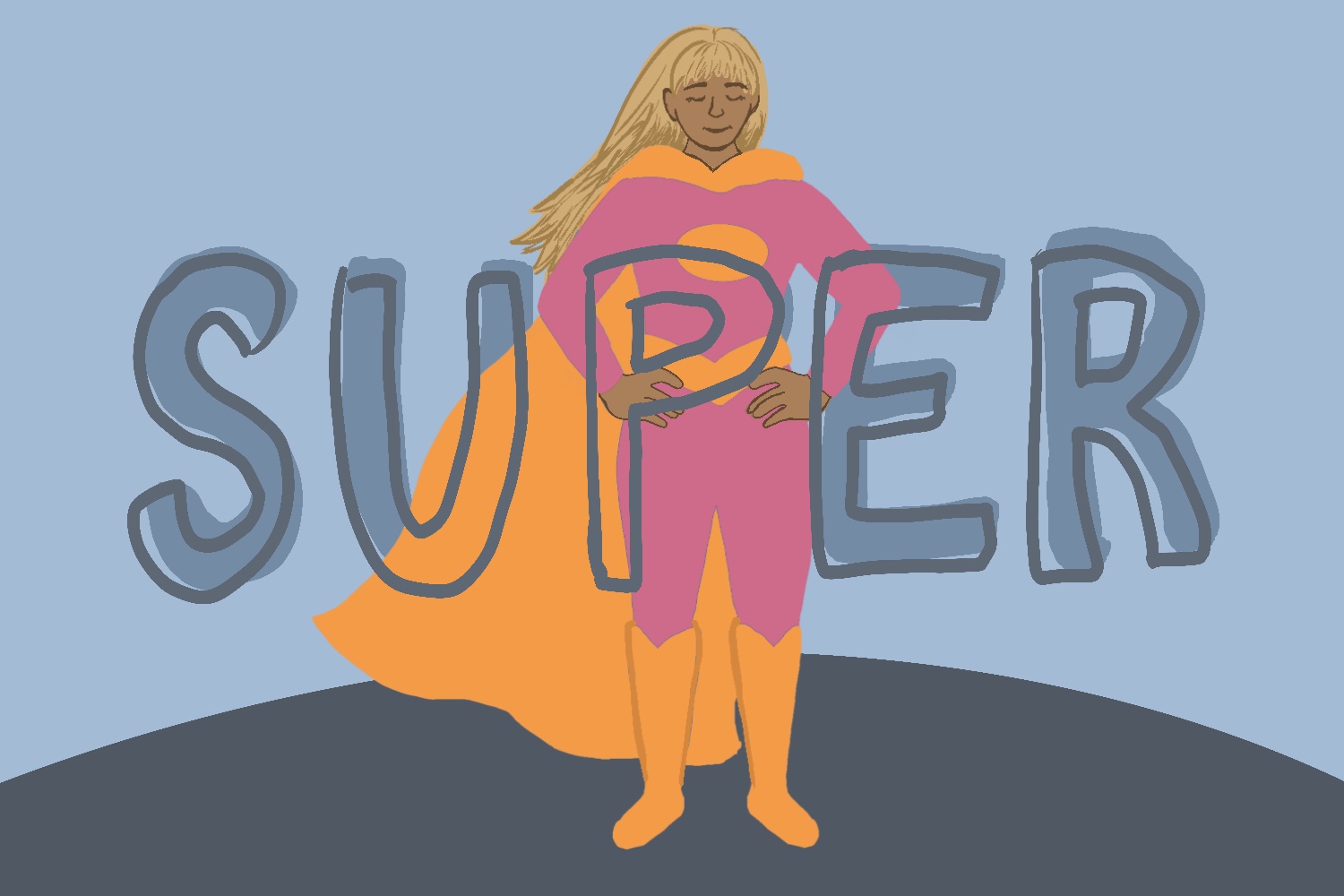For decades, the role of women in superhero and action films has been helpless love interests who need saving to reinforce the “hero” in their respective worlds. Female superheroes tend to slowly fade out into the background or develop superficial interests in their vigilantism.
The list is endless. Andrew Garfield’s Spider-Man attempts to save valedictorian Gwen Stacy in “The Amazing Spider-Man 2” and successfully saves Michelle “MJ” Jones in “Spider-Man: No Way Home.” Oliver Queen, otherwise known as the Green Arrow, saves tech genius and philanthropist Felicity Smoak numerous times throughout the “Arrow” series, and even the all-powerful Wanda Maximoff needs to be saved by the humanoid android Vision.
It seems no matter what, the act of a superhero saving a woman is an essential plot point in every movie.
The concept of superheroes has always been marketed and targeted toward young boys, shaping a standard that “saving the day” is what captures the attention of women. In the same way that little girls are raised to believe they need princes, little boys are raised to believe that superheroes have to save damsels in distress.
Even when women are given roles in superhero media, it is as a love interest or hypersexualized villain that serves no purpose other than to focus on the power of a man.
At one point in nearly every superhero comic, movie or TV show, the damsel in distress falls in love with the hero. It’s a tale as old as time.
In the Captain America series, Peggy Carter turns heads as a high-ranking intelligence officer and female authority figure during World War 2, but later becomes a love interest for Steve Rogers, also known as Captain America.
In “Star Wars,” princess Leia Organa is sandwiched between her brother, Jedi Luke Skywalker, and Han Solo, her — you guessed it — future husband.
The pipeline of powerful women becoming love interests is frustrating. Women provide much more to a story than a shallow characterization as a supporting character.
Over time, however, the emergence of independent heroines has begun to change the story.
New female-led superhero media like “Jessica Jones” and “Batwoman” emphasize the need for female representation in otherwise male-dominated fan service.
Younger female superheroes are given their own spotlights, from the titular Stargirl in the DC series to Ms. Marvel.
There has also been a growing emphasis on developing the backstories of older superhero staples like Black Widow and Wonder Woman. In recent years, creatives have turned these femme fatales into real characters with pasts and stories, showing audiences that there is much more to superheroines than magical powers and perfect bodies.
In “Black Widow,” Natasha Romanoff is raised to become a Russian spy. In “Captain Marvel,” Carol Danvers struggles with memory loss and existential crisis after a plane crash. Despite these struggles, they are personified as heroes who learn from their pasts and choose to do good for the world.
The growth of female influence in superhero media has established a new norm of women becoming the heroes. The rise in popularity of heroes such as Wonder Woman, Black Widow and Supergirl sends a new message to young girls: Girls can be heroes, too. Girls can save the day.

Wonder Woman saves Steve Trevor, time and time again. In the opening scene of “The Avengers,” Black Widow easily takes down a series of enemy agents while talking on the phone. In her eponymous film, Captain Marvel quite literally saves an entire alien race. Most recently, in James Gunn’s 2025 adaptation of “Superman,” Lois Lane saves the titular character from Lex Luthor.
Admittedly, even with the progress that has been made in terms of representation, sexism is reflected through the poor reviews and ratings of the aforementioned pieces of media. It seems that no matter how powerful, women cannot be taken seriously in any manner.
Still, we cannot deny there has been a powerful start to combat gender stereotypes — but a continued effort is essential.
It is not a “girl power” movement, but rather a foundational belief in gender equality.
Anyone can save the day. Everyone can make a difference, no matter how strong or how powerful.
There is still a long way before female superheroes will be held to the same standard as classic male heroes. But it is a trail ablaze, and it is a force to be reckoned with.
Every hero needs a hero. The lucky ones, however, get a heroine.